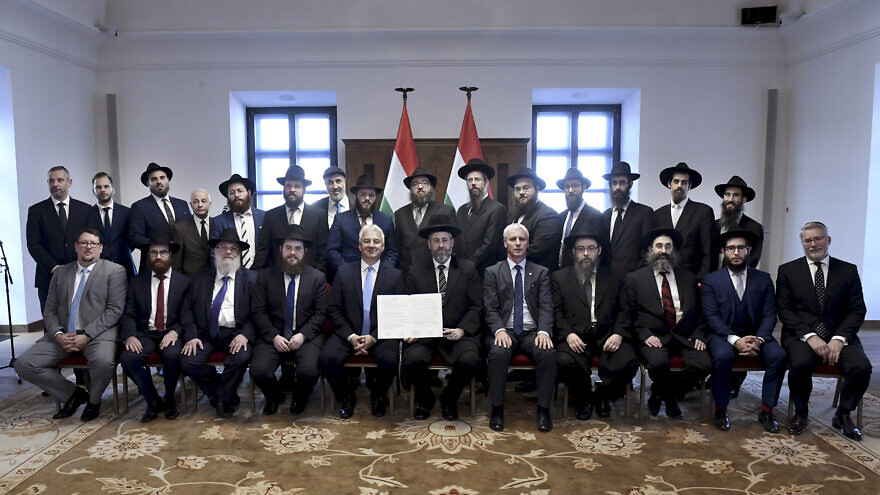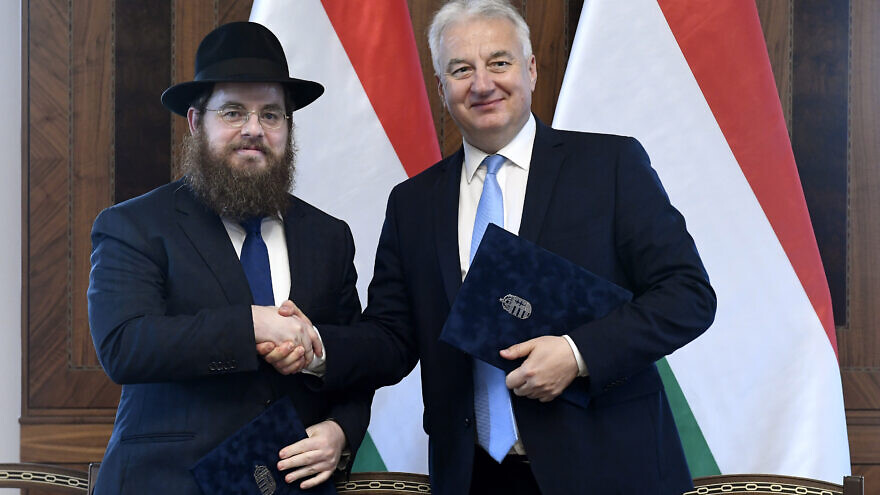The Hungarian government signed a special agreement with the Orthodox Jewish Communities Association (EMIH) to officially grant the country’s Orthodox community with “special status” for the first time since World War II.
The title, which is already enjoyed by several churches and the Mazsihisz—the country’s largest federation of Jewish communities—allows for a representative from each organization who oversees and receives government funding for the educational and religious institutions of his or her respective movement.
The agreement was signed by Deputy Prime Minister Zsolt Semjén and Chief Rabbi of EMIH–Association of United Hungarian Jewish Congregation (linked to Chabad Lubavics of Hungary) Rabbi Shlomo Koves, who as a result of the recognition became an official representative of the Jewish community in Hungary.
“We are pleased that the government has chosen to strengthen its relationship with EMIH, to recognize our achievements and acknowledge us as being one of the most vibrant Jewish communities in central Europe,” Koves said in a statement. “The agreement that was signed today marks a significant milestone in the resurrection of the Hungarian Jewish community, which was almost wiped out during the Holocaust.”
Hungary is home to an estimated Jewish community that numbers between 75,000 to 100,000, making it one of the largest in Eastern Europe.
Eight synagogues operate throughout Hungary under EMIH with 17 rabbis and Chabad-Lubavitch emissaries serving members of the local community, as well as many tourists in Budapest, Miskolc and Debrecen. Hundreds of students attend Chabad elementary and high schools. EMIH operates a canteen for the needy, a publishing house, kosher-slaughtering services, kosher restaurants and more.
In January, a bar mitzvah was celebrated at the Buda Castle synagogue, the first to be celebrated there in 332 years. The young celebrant was a student of Rabbi Asher Faith, the Hungarian-born rabbi who leads the now-flourishing congregation.
Nevertheless, there have been tensions between the EMIH community and the Mazsihisz, especially over latter’s opposition to Hungarian Prime Minister Viktor Orbán, which they have accused of whitewashing Hungary’s role in the Holocaust. The EMIH has been less critical of Orbán and has defended the Hungarian leader from accusations over anti-Semitism.



























